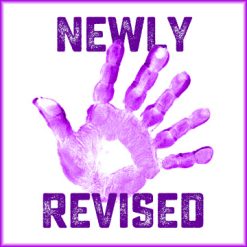|
Anatomy Of A Successful Cold Call
... To Heat Up Your Voice Over Biz
By Maxine Dunn
Voice Actor
©2010 Maxine Dunn
 First, let’s just get clear: What is a “cold call"? First, let’s just get clear: What is a “cold call"?
For some reason, the term “cold call” has received a bum rap as of late.
While it’s true that your website should be pre-qualifying leads - customers and clients - for you, I firmly believe that reaching out to people by phone should be an integral part of any entrepreneur’s marketing strategy.
CAN'T AVOID IT
Some of my biggest-grossing client relationships - clients for whom I’ve been working steadily for years - started off with a cold call from me.
Even if you’re not interested in creating a branch of your marketing strategy that includes calling prospective clients on the phone, there will still be times in your life where you have to pick up the phone and call someone you don’t know to ask for information or help.
Knowing how to handle yourself in that situation will be an asset to your business and subsequently to your bottom line.
OPENS THE DOOR
First, I want you to let go of the idea that the purpose of a cold call is to get an appointment.
Forget the “sales objective” training modules that lead you through a step-by-step trajectory to “get the sale.” People do business with people they know, like, and trust. So your cold call is opening the door and initiating that relationship.
My techniques will make your cold-calling experience easy and fun. You’ll be amazed at how much better your prospective clients respond as a result of following these guidelines ...
1. Adjust Your Expectations
Make your cold-calling expectations easy-to-meet. If your expectations are to “make a sale” or actually even reach the person you’re calling, you may well be disappointed.
Decide that your #1 goal for the call is simply to have a pleasant conversation with whoever you get on the phone.
That’s it!
Even if you just speak to the receptionist for 30 seconds, your sole objective is to make the conversation pleasant and enjoyable.
See how much easier the call is already?
2. Be Prepared – Part A
Know a lot about who you’re calling:
Everything. Being knowledgeable about the person and company you’re calling is not only respectful and professional, but you’ll be able to ask intelligent, spontaneous questions and give informed responses in your conversation.
3. Be Prepared – Part B
Write out an outline or a brief “script” of what information you’d like to share, and what information you’re calling to discover.
This is not a “pitch” that you read.
Having an outline of the important points you’d like to convey will help keep you succinct, on track, and prevent too many of those fumbling-for-words moments you might experience if nerves take over.
4. Be Respectful
If you hear phones ringing in the background or get put on hold immediately by a hurried-sounding receptionist, pay attention!
If you can tell it’s not a good time to call, then get off the phone.
You can simply say, “I was calling for Bill Russell but it sounds like you’re super busy right now. Would it be better if I call back later?”
You will amazed at how showing empathy for the person on the other end of the phone will immediately soften their tone of voice, allow them to relax momentarily, and will very probably get you transferred right away.
5. Be Sincere
I want you to talk into the phone as if your best friend is sitting in front of you.
I want you to be totally engaged and present. Do not multi-task when you are on the phone!
Listen. Care.
People can sense when you’re just politely listening and waiting for them to finish so you can speak. They can tell when you’re reading from a script and not being sincere.
Really, really, listen and respond as if you’re responding to a friend you care deeply about.
6. Ask For What You Want
After following the previously mentioned steps, simply ask for what you want.
Simple. Clear. No hidden agenda. Direct, short sentences are best:
People (even big, C-level corporate types) like short, honest, direct questions with no “salesy” agenda.
7. Get Off The Phone First
This is self-explanatory. Do not be rambling on so long that your client finally has to say,
Make certain you end the call first. That way they’ll be more likely to take your calls in the future when they know you won’t be taking up too much of their time.
8. Stay Organized
During or after your conversation, take detailed notes:
Keep extremely detailed records of your call so you can refer back to talking points if you need to.
When you get your prospective client on the phone the second time and you remember to ask how his son’s soccer game went, they’ll practically faint.
Rarely do people remember important information.
Stand out. Be organized. And pay attention to the smallest details.
9. Follow Up
The fortune is in the follow-up.
Remember, you are developing a relationship. And be very patient. Sometimes it can take a couple of weeks or five or more phone calls to reach the person you want to talk to.
Make sure you factor in marketing time in your business day for your follow-ups.
Keep in touch with your prospective clients by mail, email, fax or phone. If you say you’re going to call back next Tuesday at 10:00 a.m., then call back next Tuesday at 10:00 a.m.
Touch base to see if they have received what you sent, have any questions, or would like any additional information.
Send a thank-you note with a Starbuck’s gift-card to the receptionist who was so helpful on those five different occasions.
Keep in touch! Making phone calls to prospective clients can be fun, exciting, and rewarding – it’s all in how you approach it.
What To Remember ...
So remember to:
I guarantee that if you follow my guidelines you’ll discover that not only can cold calls be a wonderful way to introduce yourself to new clients and customers, they are a great way to get you out of your comfort zone while developing a very important entrepreneurial skill-set.
ABOUT MAXINE ...
Maxine Dunn is a top voice over artist and on-camera spokesperson who has been seen and heard in hundreds of commercials, documentaries, corporate narrations, voice-mail systems and websites. She is a British native and her ability to also deliver a perfect American accent gives her business a wide range. She works with Fortune 100 companies, award-winning creative teams, and maintains an extensive clientele - locally, nationally, and internationally. Best known for her voice over and spokesperson expertise, she is also an avid writer who enjoys bringing stimulating and motivating material to her readers. Her free weekly e-zine, The Creative Business Advisor, is available at her website (below).
Web: www.maxinedunn.com
Email: Maxine@maxinedunn.com
Complimentary newsletter sample: http://conta.cc/MaxineNL
|
As of the NEW website launch, 03/22/2012










I'm so glad to see this article available to more than just your newsletter subscribers!
Be well,
Bob
Fantastic article! Very well laid out and explained. Coming from a background in sales, you are absolutely correct: that initial contact is to start to build relationships - not to book a gig. If you nurture those contacts and follow up, the gigs will come. The article is printing out as I write this, wonderful reference guide.
Thank you. Joseph
I'll be able to use some of your advice quite well, and some of your advice contains steps I'm already taking. It's nice to know that I must be on the right track ... well, actually, results speak for themselves! You've shared time-tested great advice ... I appreciate it. Well done!
DS